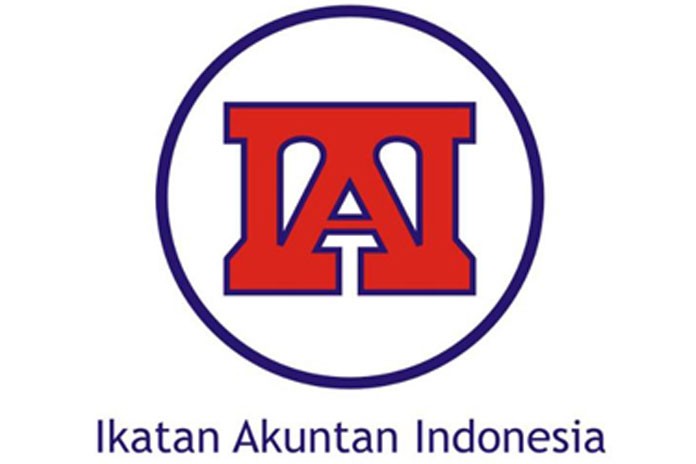MOTIVASI EKSTRINSIK PADA PENCIPTAAN BUDGETARY SLACK
Abstract
Abstract
This research aims to evaluate whether obedience pressure affect budgetary slack creation. The study population was the whole hospital managers in the city of Cilegon. The sampling method using purposive sampling with the number of samples that meet the criteria as much as 79 respondents. The questionnaire was tested with test reliability and validity, then performed the classic assumption test including normality and heteroskedastisitas. Then the hypothesis test conducted by regression analysis. The results showed that all variables are reliable and valid and meet the classic assumption test. Results of the analysis showed that obedience pressure significant and positive effect on budgetary slack.
Keywords: Pressure obedience, budgetary slack
Abstrak
Penelitian ini bertujuan untuk mengevaluasi apakah tekanan ketaatan berpengaruh terhadap penciptaan slack anggaran. Populasi penelitian adalah seluruh pengelola rumah sakit di kota Cilegon. Metode pengambilan sampel menggunakan purposive sampling dengan jumlah sampel yang memenuhi kriteria sebanyak 79 responden. Kuesioner diuji dengan uji reliabilitas dan validitas, kemudian dilakukan uji asumsi klasik termasuk normalitas dan heteroskedastisitas. Maka uji hipotesis dilakukan dengan analisis regresi. Hasil penelitian menunjukkan bahwa semua variabel dapat diandalkan dan valid dan memenuhi uji asumsi klasik. Hasil analisis menunjukkan bahwa tekanan kepatuhan berpengaruh signifikan dan positif terhadap senjangan anggaran.
Kata kunci: Ketaatan tekanan, senjangan anggaran
Full Text:
PDFReferences
Aditama, Tjandra Yoga. 2003. Manajemen Administrasi Rumah Sakit. Penerbit Universitas Indonesia Press: Jakarta
Anthony, R. N. dan V. Govindarajan. 2001. Management Control System. McGraw-Hill Education: Irwin.
Blanchette, Danielle; Claude Pilote dan Jean Cadieux. 2002. Manager’s Moral Evaluation of Budgetary Slack Creation. www.accounting.rutgers.Edu/ raw/aaa/2002annual/cpe/cpe3/B-2.pdf
Bowie, N., dan Duska, R. 1990. Business Ethics (2nd ed.). Englewood Cliffs, NJ: Prentice Hall.
Covaleski, M. J; Evans J. III; Luft dan M. Shields. 2003. Budgeting research: Three theoretical perspectives and criteria for elective integration. Journal of Management Accounting Research 15: 3–49.
Davis, Stan F; Todd DeZoort dan Lori S. Kopp. 2006. The Effect of Obedience Pressure and Perceived Responsibility on Management Accountants’ Creation of Budgetary Slack. Behavioral Research In Accounting. Vol 18: 19-35.
Douglas, P. C. dan Wier, B. 2000. Integrating ethical dimensions into a model of budgetary slack creation. Journal of Business Ethics, 28, 267–277.
Dunk, A. 1993. The effect of budget emphasis and information asymmetry on the relation between budgetary participation and slack. The Accounting Review, (April), 68(2), 400–410.
Evans, J. H. III; Hannan, R; Krishnan, R. & Moser, D. 2001. Honesty in managerial reporting. The Accounting Review, 76, 537–559.
Ghozali, Imam. 2006. Aplikasi Analisis Multivariate Dengan Program SPSS.Badan Penerbit Universitas Diponegoro : Semarang
Hansen, D.R dan Mowen. M. 2000. Management Accounting. South Western College Publishing
Hobson, Jessen L; Mellon, Mark J dan Stevens, Douglas S. 2011. Determinants of moral judgments regarding budgetary slack: an experimental examination of pay scheme and personal values. Behavioral Research in Accounting, Vol23 No. 1
Jones, T. M. 1991. Ethical decision making by individuals in organizations: An issue-contingent model. Academy of Management Review, 15, 366–392
Kren, L. 1993. Control system effects on budget slack. Advances in Management Accounting, 2, 109–118.
Kren, Leslie & Maiga, Adam S. 2007. The Intervening Effect of Information Asymmetry on budget Participation and Segment Slack. Advance in Management Accounting, Vol 16, 141-157
Luft, J. L. 1997. Fairness, ethics and the effect of management accounting on transaction costs. Journal of Management Accounting Research, 9, 199–216.
Lukka, K. 1988. Budgetary biasing in organizations: Theoretical framework and empirical evidence. Accounting, Organization and Society, 13, 281–301.
Maiga, Adam S. 2005. The Effect of Manager's Moral Equity on the Relationship Between Budget Participation and Propensity to Create Slack: A Research Note. Vol. Advances in Accounting Behavioral Research Iss: 8, pp.139 - 165
Milani, K. 1975. The relationship of participation in budget-setting to industrial supervisor performance and attitudes: A field study. The Accounting Review, 50(2), 274–284.
Nouri, Hossein dan Parker, Robert, J. 1996. The Effect of Organizational Commitment on the Relation Between Budgetary Participation and Budgetary Slack. Behavioral Research in Accounting, Vol. 8
Robin, D. P dan Reidenbach, R. E. 1996. The perceived importance of an ethical issue as an influence on the ethical decision-making of ad managers. Journal of Business Research, 5(1), 17–28.
Schiff, M., dan A.Y. Lewin. 1970. The impact of people on budgets. The Accounting Review (April): 259-268
Sekaran, Uma. 2006. Research Methods for Business. Salemba Empat
Stevens, Douglas E. 2002. The effects of reputation and ethics on budgetary slack. Journal of Management Accounting Research, 14, 153–17
Waller, W. S. 1988. Slack in participating budgeting: The joint effect of a truth inducing pay scheme and risk preferences. Accounting, Organizations and Society, 13, 87–98.
Young, S. M. 1985. Participative budgeting: The effects of risk aversion and asymmetric information on budgetary slack. Journal of Accounting Research, (Autumn), 23(2), 829–842.
DOI: http://dx.doi.org/10.35448/jrat.v10i2.4235
Refbacks
- There are currently no refbacks.
pISSN 1979-682X eISSN 2528-7443
Jurnal Riset Akuntasi Terpadu (JRAT) is licensed under a Creative Commons Attribution 4.0 International License







